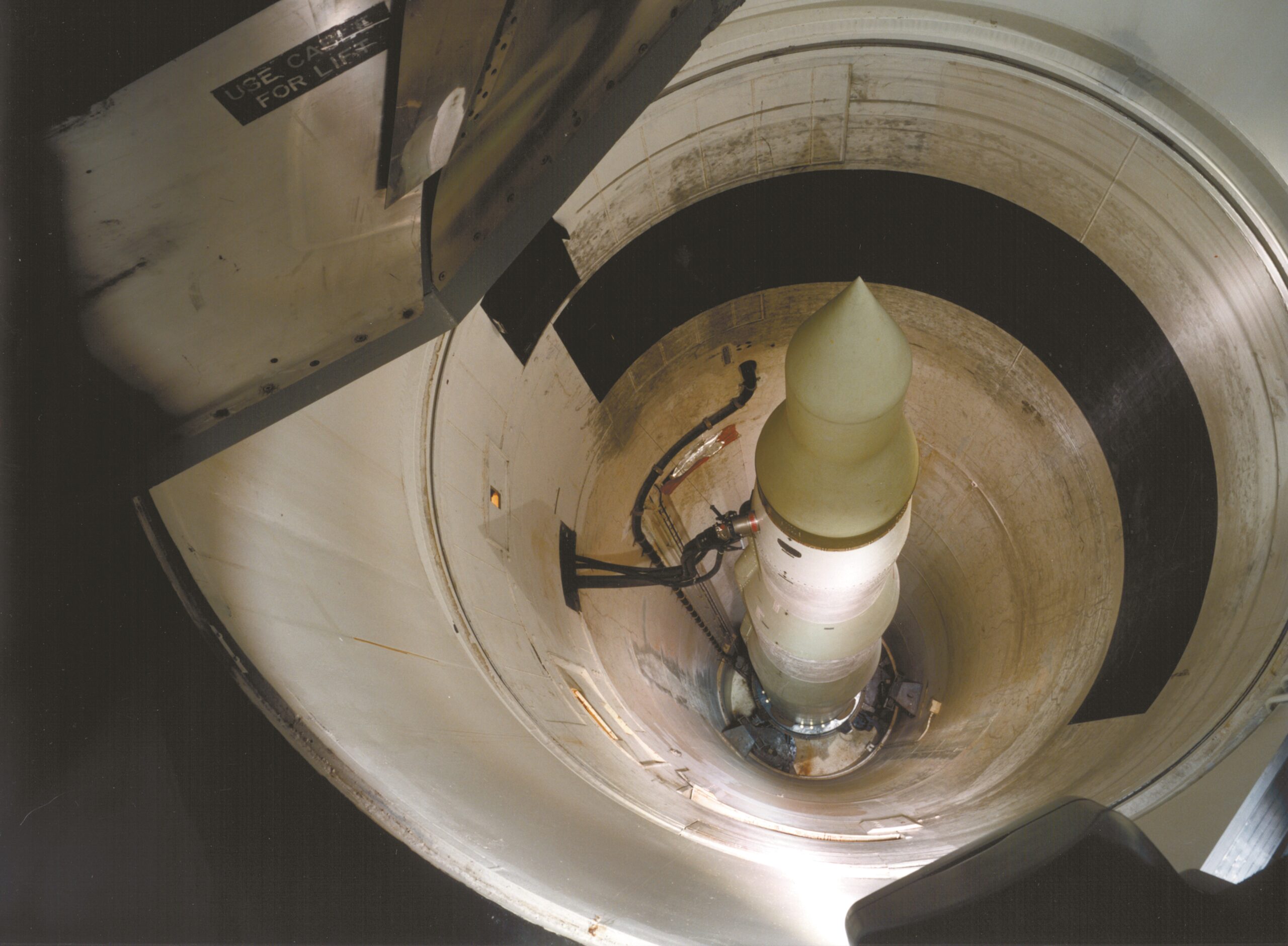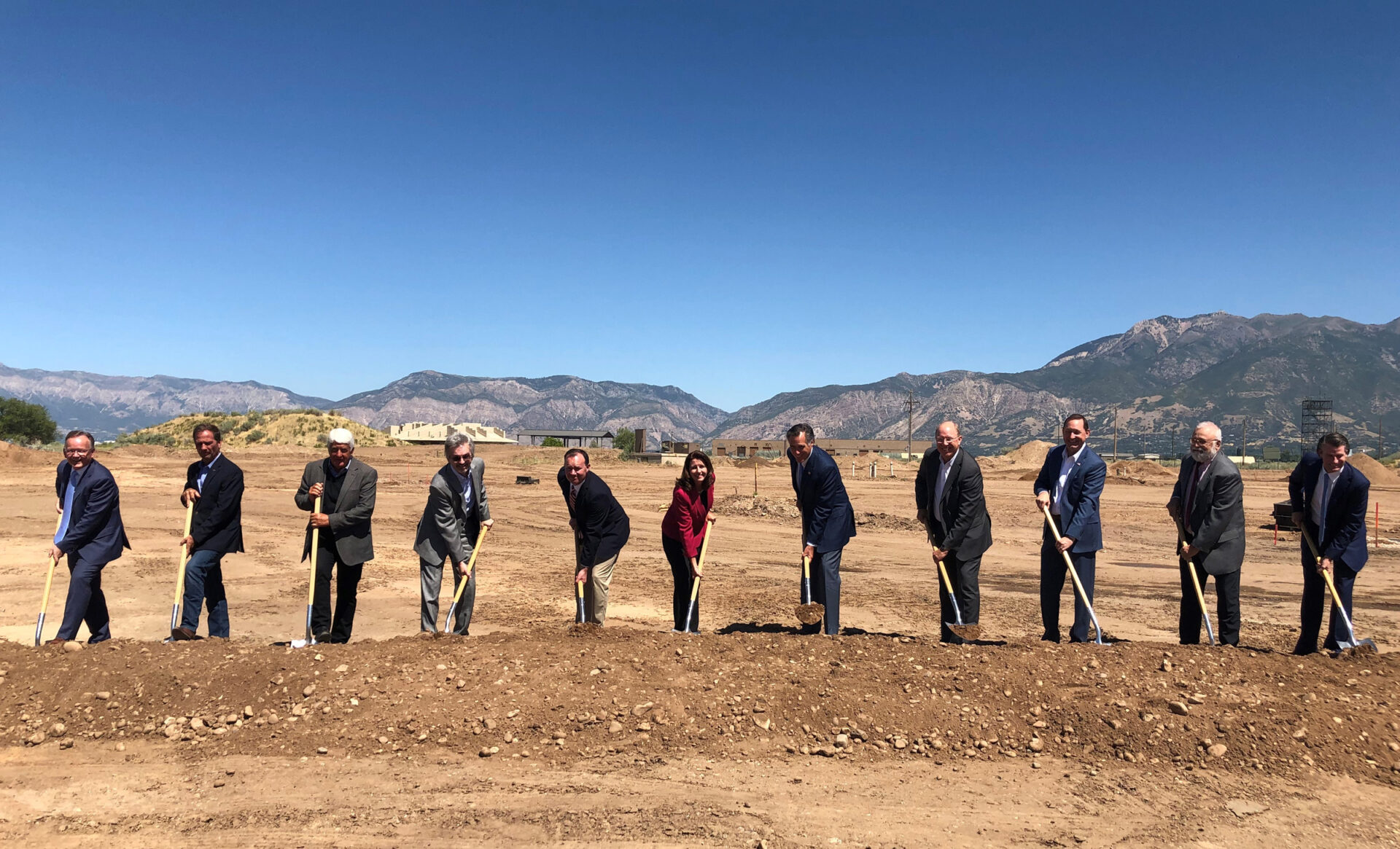Each year, state and local governments spend more than $90 billion to subsidize corporations that expand in or relocate to their districts. While politicians describe these deals as incentives that create jobs for locals, in recent years the practice has attracted a growing body of critics on the political left and right who oppose handouts to profitable firms and say the subsidies undermine free market principles and shift tax burdens to ordinary people and small businesses.
“Nobody who’s looked at them seriously thinks they work economically,” Garofalo, the director of state and local policy at the anti-monopoly American Economic Liberties Project, told Inkstick. “But it’s a really potent political tool for incumbent politicians to say, ‘Hey, we’re doing something. Look, we’re creating jobs.’”
The new ICBM is one of the most contentious weapons being purchased as part of the United States’ “nuclear modernization.” The latter refers to an estimated $1.7 trillion spending program in which the military will restock every part of its nuclear weapons arsenal – new bomber aircraft, new plutonium pits, new stealthy submarines, and more.
The ICBMs made in Utah will be loaded with warheads and sent to 400 silos across Montana, Wyoming, North Dakota, Colorado and Nebraska. There, as they have done for six decades, the ICBMs will be buried underground as nearby Air Force personnel known as missileers man subterranean capsules around the clock, waiting for orders from the president to launch those ICBMs in fiery arcs across the globe toward targets in Russia or China in about the time it takes to get a pizza delivered in America.
Inkstick Media requested a copy of that NDA, to which a spokesman responded that the office had not located its original confidentiality agreement with the company and therefore signed a new one. That document is dated Dec. 16, 2022 – 11 days after Inkstick made its first records request.
A diverse body of critics have lobbied against the weapon for reasons related both to its military usefulness and its cost. From a national security perspective, delivering warheads via ICBMs in silos is seen as antiquated and at greater risk for a hair-trigger launch in comparison to alternative weapons delivered by submarines and aircraft. It’s also riskier for the Americans who live among the ICBM fields, since their fixed locations across the American West stamp them with a “bomb me first” bullseye should Moscow, Beijing or another rival one day decide to attack the United States’ nuclear infrastructure.
From a financial perspective, the projected $100 billion price tag of the ICBMs raised alarm among military-industrial complex watchdogs because the contract to produce the missiles wasn’t competitive. Only a single company – Northrop Grumman – bid on the project. Its would-be competitor, Boeing, backed out after Northrop Grumman acquired a key company that produces solid-fuel rocket engines, which make the ICBMs lift off. Boeing complained that the process to bid on the new ICBM was unfair.
However, Grover, the Utah state subsidies administrator, told Inkstick that Northrop Grumman operates in “a competitive defense contractor industry” and that releasing information on its job creation could harm the company.
“Go Utah will not disclose sensitive economic information that will harm the economic interests of businesses that participate in the EDTIF [state subsidies] program,” Grover wrote in a four-page letter justifying the redactions to Inkstick. “[T]he private interest of Northrop Grumman outweighs any public interest in obtaining private speculative future employment or salary projections,” he wrote.
Garofalo, the economic development expert, called that claim “nonsense.”
“The literal amount of people who will be sitting in this facility doing jobs – that can’t possibly be a trade secret,” he said.
Another reason the government told Inkstick it couldn’t release the full contract is because it had signed a non-disclosure agreement (NDA) with Northrop Grumman. Inkstick Media requested a copy of that NDA, to which a spokesman responded that the office had not located its original confidentiality agreement with the company and therefore signed a new one. That document is dated Dec. 16, 2022 – 11 days after Inkstick made its first records request.
Edward Carter, a journalism professor at Brigham Young University and attorney with experience in public records law, called the government’s citation of the NDA “really problematic.”
“If government agencies and companies can just sign agreements whenever they want, determining what’s public and what’s not, then why do we have an open records law?” he said.
Spokespeople for Northrop Grumman did not respond to calls, voicemails, or emails from Inkstick requesting comment on the deal.
Per the contract, the military contractor can claim more than $59 million in state subsidies, provided via refundable tax credits called Economic Development Tax Increment Financing (EDTIF). Though the deal was announced in 2020, the contract provided to Inkstick was only signed in 2022.
Unlike some other states and localities, Utah does not require public comment before approving an EDTIF contract, Tony Young, the communications director at the Governor’s Office of Economic Opportunity, told Inkstick.























